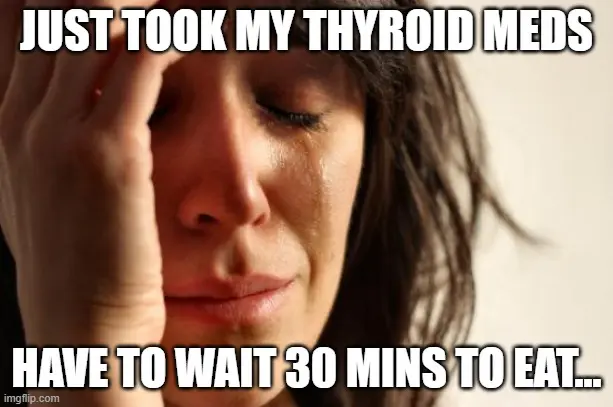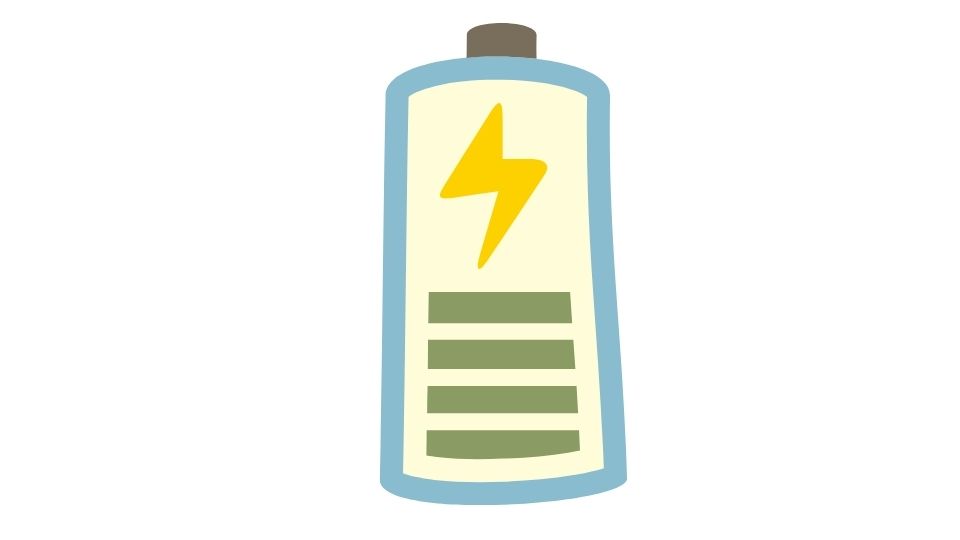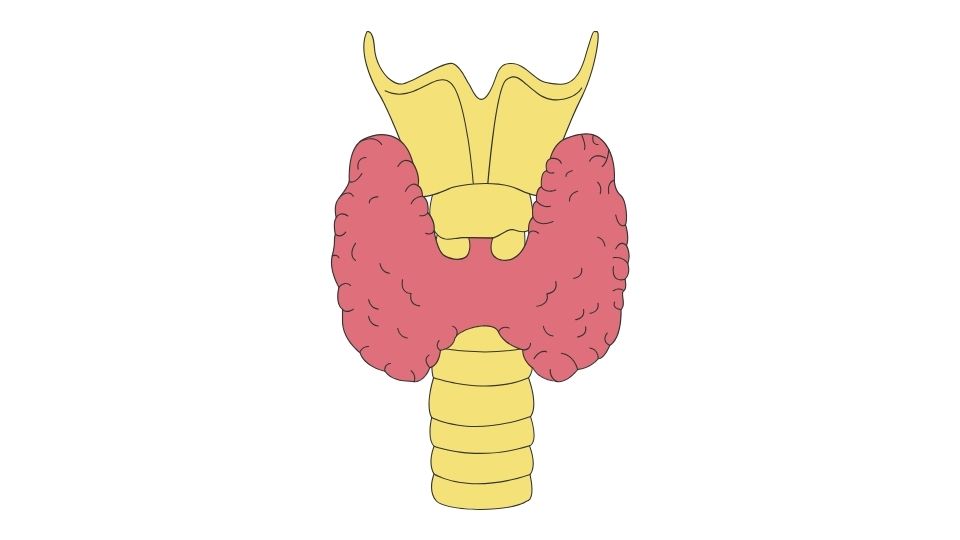Ever wonder if what you’re eating is making your thyroid problems worse? Or better?
I sure did. But I found out that tracking what you eat isn’t just for fitness buffs – it might be the missing piece for anyone struggling with thyroid issues.
So grab your fork (and maybe your phone) because I’m about to show you how meal tracking could be a game-changer for your thyroid health – with a healthy dose of my opinion sprinkled on top.

The Thyroid-Food Connection: Why What You Eat Matters
Your thyroid is basically the metabolism control center for your entire body. And just like any high-performance machine, it needs the right fuel to function properly.
The connection between your diet and thyroid is so strong that scientists have a fancy name for it: the diet-gut-thyroid axis. This just means that what you eat directly impacts how well your thyroid works.
Here’s the deal: your thyroid needs specific nutrients to make hormones. Without them, it’s like trying to build a house without lumber – not gonna happen.
The most critical nutrients your thyroid is desperately hungry for include:
- Iodine (the big one)
- Selenium
- Iron
- Zinc
- Copper
- Vitamin A
- Vitamin B12
Not getting enough of these? Your thyroid might start throwing a tantrum. And trust me, nobody wants that.
Thyroid-Friendly Foods You Should Actually Be Eating

Want to show your thyroid some love? Here are the foods that should be on your plate:
Green Tea
Not just a trendy hipster drink! Green tea actually boosts your metabolism, which is exactly what your sluggish thyroid needs. I’ve started swapping my afternoon coffee for green tea, and while I miss the caffeine punch, my thyroid thanks me.
Whole Grains
Oats, brown rice, quinoa – these foods take more energy to digest, which means they rev up your metabolism. Plus, the fiber keeps things moving through your digestive system (if you know what I mean).
Avocados
Rich in healthy fats and antioxidants, avocados support overall health including thyroid function. And let’s be honest, they make everything taste better.
Broccoli
High in calcium, vitamin C, and fiber. Just don’t go overboard if you have hypothyroidism – too many cruciferous veggies can sometimes interfere with iodine uptake. Everything in moderation!
Selenium Superstars
Brazil nuts are like selenium bombs – just 1-2 nuts meet your daily needs. Tuna and beef are also great sources. Selenium is crucial for converting thyroid hormones into their active form.
Iron-Rich Foods
Spinach, beans, and red meat all provide iron, which is essential for thyroid hormone production. Without enough iron, your thyroid can’t do its job properly.
Why Tracking What You Eat Makes All The Difference
You might be thinking, “Josh, I eat healthy already. Why do I need to track my meals?”
Fair question. But here’s why tracking is a game-changer for thyroid health:
It Reveals Hidden Nutritional Gaps
You might think you’re getting enough selenium, but are you really? Tracking shows you the truth about your nutritional intake. And the truth might surprise you.
When I started tracking, I realized I was getting way less vitamin D than I thought. No wonder my energy levels were in the toilet!
It Helps Identify Food Triggers
Some people with thyroid issues are sensitive to certain foods. Maybe gluten makes your symptoms flare up. Maybe dairy does. Without tracking, these patterns are nearly impossible to spot.
It Keeps Weight Management On Track
Let’s be real: thyroid issues often come with weight struggles. Whether you’re trying to lose weight with hypothyroidism (uphill battle!) or gain weight with hyperthyroidism, tracking helps you maintain control.
When my thyroid was underactive, I gained 15 pounds despite “eating healthy.” Turns out, my portion sizes were way off. Tracking helped me get that under control.
It Gives Your Doctor Valuable Data
Your endocrinologist asks how your diet has been, and you say “pretty good.” Not helpful! With tracking data, you can show exactly what you’ve been eating, which helps with treatment decisions.
The Best Tools For Tracking Your Thyroid-Friendly Meals

Now for the practical part – how do you actually track your meals without going insane?
MyFitnessPal
The OG of food tracking apps. Has a massive database of foods, which is both good and bad – sometimes the user-submitted entries have inaccurate nutrition info. But it’s free and easy to use.
MealByMeal
This one’s interesting – you just text your meals to them, and they handle the tracking for you. Great if you hate manually logging everything. They provide comprehensive calorie and nutrient tracking which is super helpful for monitoring those thyroid-critical nutrients.
Cronometer
If you’re a data nerd like me, Cronometer is your best friend. It tracks micronutrients in detail, showing you exactly how much selenium, iodine, etc. you’re getting. The detailed nutrition reports are incredibly valuable for thyroid patients.
Thyroid-Specific Apps
Some apps like ThyForLife focus on overall thyroid management, including medication tracking and symptom logging. These aren’t primarily food trackers but can help you see how your diet affects your symptoms.
How To Track Without Losing Your Mind

Let’s be honest – tracking every bite can become obsessive and stressful. And stress is terrible for your thyroid. So here’s how to keep it sane:
Start with just 3 days a week – You’ll still see patterns without the daily grind
Focus on the thyroid-critical nutrients – Don’t worry about tracking every single vitamin and mineral
Take pictures of your meals – This helps with memory and accuracy when you log later
Use the data, don’t let it use you – The point is to improve your health, not create another source of anxiety
Share insights with your healthcare provider – They can help interpret what the data means for your specific condition
Is This All Worth The Effort?

Look, I’m not going to sugar-coat it (sugar isn’t great for your thyroid anyway): tracking takes effort. But when it comes to thyroid health, what you don’t know absolutely can hurt you.
For me, tracking revealed that I was chronically low in selenium and iodine – two of the most important thyroid nutrients. Once I fixed those deficiencies, my energy levels improved dramatically.
Would I have figured that out without tracking? Maybe eventually, after years of trial and error. Tracking just sped up the process.
Is tracking meals going to fix all your thyroid problems? Of course not. You still need proper medical care, medication if prescribed, and other lifestyle factors like stress management and exercise.
But think of tracking as giving yourself a map for your thyroid health journey. You wouldn’t try to navigate an unfamiliar city without GPS, would you?
So give it a try. Start small. Be consistent. And remember that the goal isn’t perfect tracking – it’s better health.
Your thyroid will thank you. And you might just start feeling like yourself again.




Leave a Reply